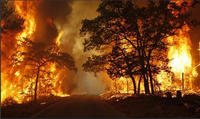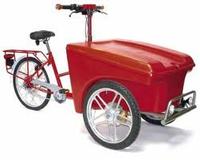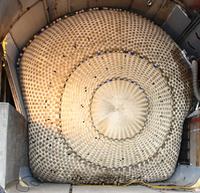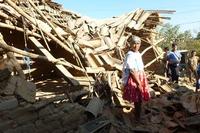-
Direct drinking water recycling could prevent floods
The use of a more streamlined process to recycle wastewater could have saved Brisbane from severe flooding in 2011 and mitigated recent flood risks in NSW, a leading water expert says
-
-
April 2011 was one of the worst ever in terms of killer tornadoes
The month of April 2011 saw a historic outburst of 202 tornadoes which turned broad swaths of southeastern United States into a disaster zone; researchers believe that something called a “thermal boundary” set the stage for the birth of these killer storms
-
-
Scale of 2011 disasters challenged established thinking on nature of risk
New paper says that the scale of the catastrophes experienced in 2011 exceeded previous loss-modeling predictions and has challenged established thinking on the nature of risk; the paper says that, post-2011, companies need to re-examine their risk management strategies and introduce new methodologies to strengthen their operational and financial resilience
-
-
In environmental disasters, families experience conflict, denial, silence
Environmental disasters affect individuals and communities; they also affect how family members communicate with each other, sometimes in surprising ways; the researchers say that the findings were, in some ways, counterintuitive
-
-
Southern sea levels rise dramatically
Sea levels have risen about twenty centimeters in the South West Pacific since the late nineteenth century, a new scientific study shows
-
-
U.S. severe weather insurance losses breach $1.2 billion in March

The estimated economic loss of a series of natural disasters in the United States in March reached approximately $2.0 billion, while insured losses are expected to breach $1.1 billion amid more than 170,000 insurance claims
-
-
Missouri announces additional funding for Disaster Recovery Jobs Program
Missourigovernor announces an investment of $16.5 million in federal National Emergency Grant (NEG) funding to create temporary jobs for workers in twenty-nine Missouri counties affected by tornadoes, floods, and severe storms last year
-
-
The bicycle's next frontier: disaster response

Cities in seismically active regions are examining their emergency response policies in the wake of the March 2011 tsunami in Japan; the city of Portland, Oregon, as well as citizen-led Neighborhood Emergency Teams(NET), have been including the cargo bike in their emergency response plans
-
-
Nuclear power stations launches emergency operations center
The new 12,000 square-foot facility at the Beaver Valley Power Station supports overall management of activities related to maintaining public health and safety during the emergency at the plant
-
-
Pattern of large earthquakes on San Jacinto fault identified
The San Jacinto Fault (SJF) Zone is a seismically active, major component of the overall southern San Andreas Fault system; researchers have mapped evidence of past ruptures consistent with very large earthquakes along the Clark Fault, an individual strand associated with the SJF
-
-
Containing a tunnel flood with an inflatable giant plug

Researchers have developed a giant plug to contain tunnel floods; the plug inflates (with water or air) to dimensions of roughly 32-feet-long and by 16-feet-wide, and holds 35,000 gallons, about the same capacity as a medium-sized backyard swimming pool
-
-
2011 disasters: $116 billion in insured losses, record economic losses of $370 billion
Figures confirm that 2011 was the second-highest catastrophe loss year ever for the insurance industry: 2011 saw the highest economic losses in history, at $370 billion; the insurance industry experienced the second-largest insured losses ever, at $116 billion; 2011 also brought the highest insured earthquake losses, at $49 billion; flooding in Thailand resulted in the highest insured losses ever for a single flood event, at $12 billion
-
-
Haiti implements national plan for disaster risk reduction
The government of Haiti and the UN Development Program launch Haiti’s National System for Disaster Risk Reduction program; the UN says this is one of the first times that a developing country has taken advance measures to reduce the vulnerability of its people and economy to future earthquakes
-
-
A swarm of small satellites to deflect menacing asteroids
New research suggests that the best way to divert an asteroid hurtling toward Earth is using a swarm of relatively small satellites flying in formation and cooperatively firing solar-powered lasers onto an asteroid; this would be a more effective way than the current methods being contemplated, which are focused on large unwieldy spacecraft
-
-
Mexico has an earthquake warning system, why not California?

Mexico has a functioning and apparently life-saving earthquake warning system in place; California’s system is stuck in a permanent test phase due primarily to lack of funding
-
More headlines
The long view
The Surprising Reasons Floods and Other Disasters Are Deadlier at Night
It’s not just that it’s dark and people are asleep. Urban sprawl, confirmation bias, and other factors can play a role.
Why Flash Flood Warnings Will Continue to Go Unheeded
Experts say local education and community support are key to conveying risk.
